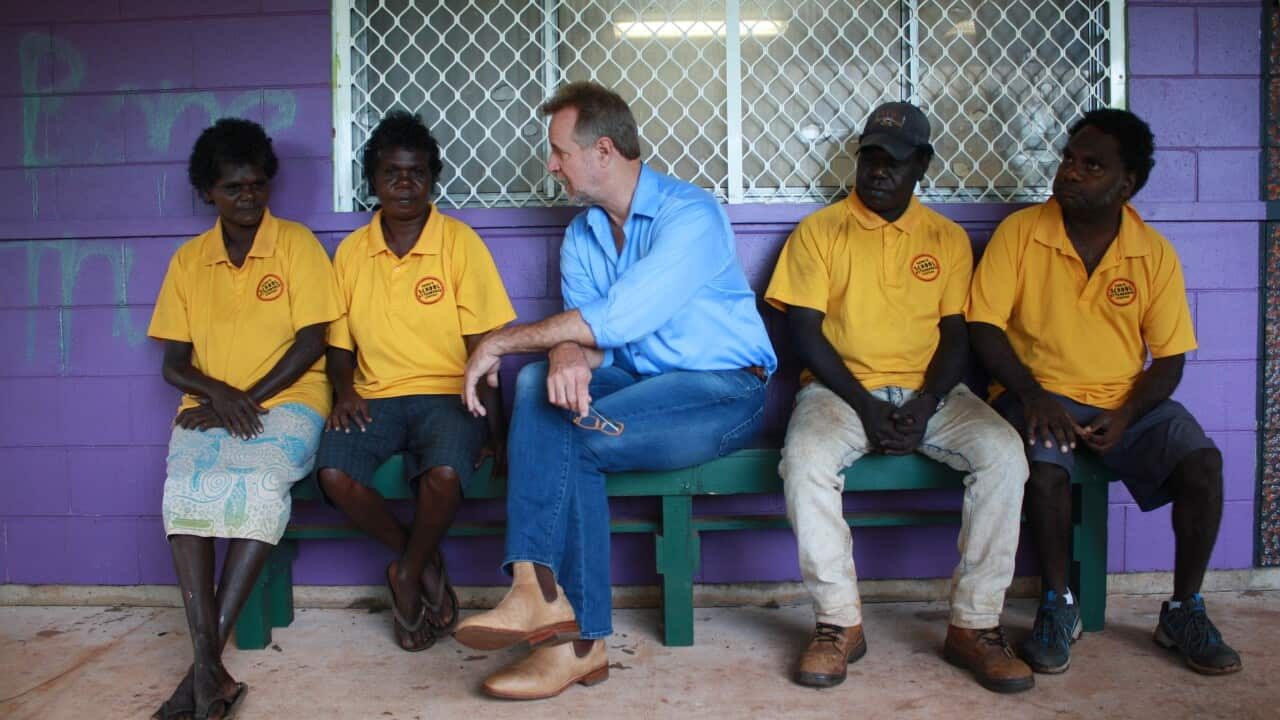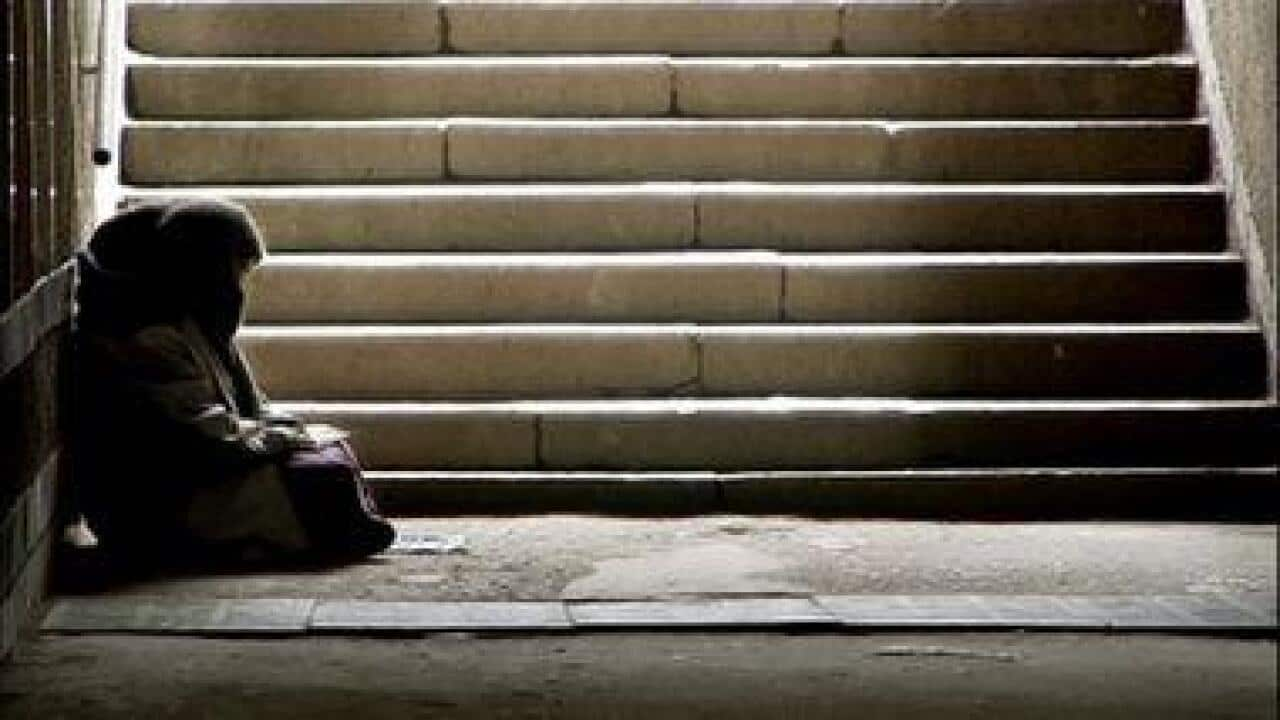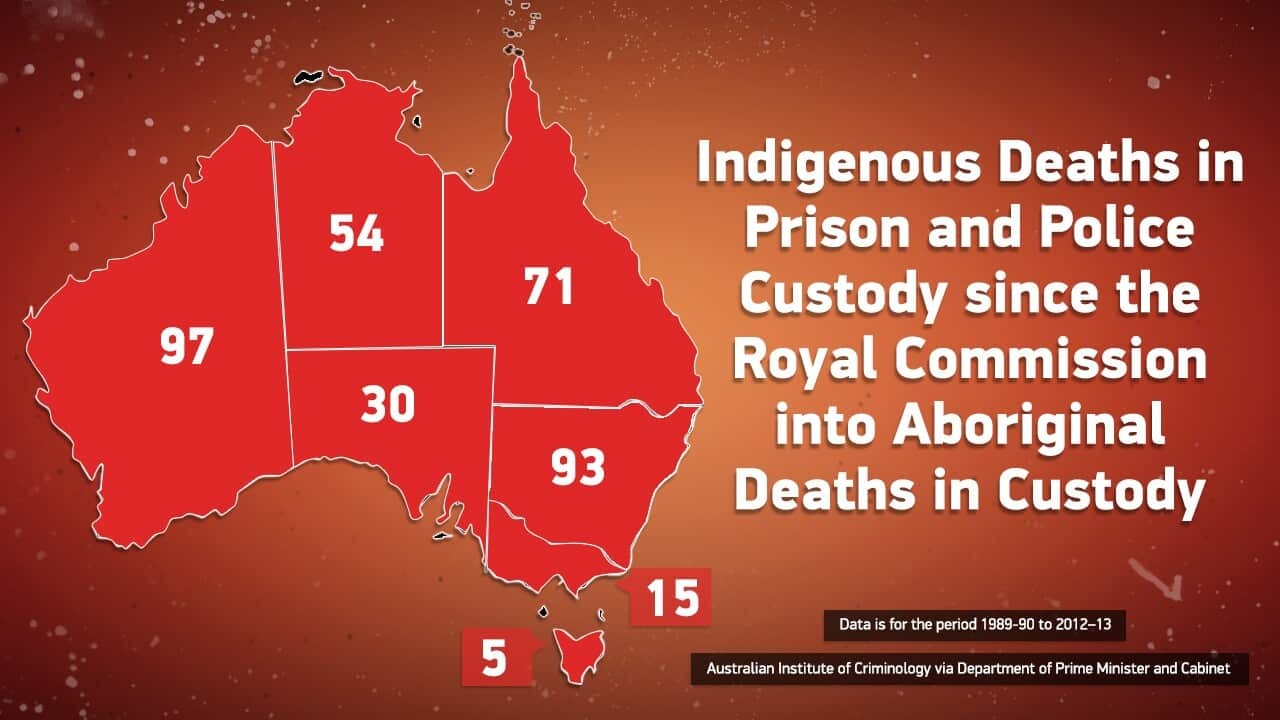The has released on the rate of poverty in Australia today.
The research shows 13.3 percent of the population lives below the poverty line.
Despite more than 25 years of economic growth, Australia’s poverty rate remains above the OECD average. ACOSS Chief Executive Cassandra Goldie says Australia is failing to protect the most vulnerable members of the community.
ACOSS Chief Executive Cassandra Goldie says Australia is failing to protect the most vulnerable members of the community.

Seventeen percent of Australian children live in poverty. Source: AFP/Getty Images
We have made virtually no impact over the last ten years on the level of poverty in Australia.
While overall poverty has dipped slightly in the decade to 2014, the percentage of children facing poverty is on the rise.
The report indicated children in single-parent families are at greatest risk of living below the poverty line.
The poverty line for a single adult in Australia is classified as receiving $426.30 a week.
For a couple with children, the line sits at just $895.22 a week.
Poverty in Aboriginal and Torres Strait Islander communities
Data from the 2014 Household, Income and Labour Dynamics in Australia survey found that Aboriginal and Torres Strait Islander people are more likely to experience poverty than other Australians
They are also at higher risk of becoming dependent on welfare than non-Indigenous Australians.
Research shows a strong link between poverty and unemployment in Indigenous communities, due in part to inadequate income support payments for people out of work.
While Aboriginal and Torres Strait Islander peoples make up approximately 3% of the population, they represent 9.6% of those currently receiving the Newstart Allowance, 14.3% of those currently in on loan parent Parenting Payments, and 18.9% of people accessing Youth Allowance.
All of these payments have been shown to fall below the poverty line

Indigenous Australians face higher rates of poverty. Source: AAP
Welfare Cuts
Chief Executive Catherine Yeoman says the current government welfare safety-net is inadequate.
“[Current welfare] is leaving families with a terrible choice between paying the rent and putting food on the table."
The research shows 57.3% of people below the poverty line rely on social security as their main source of income.
In light of the report, ACOSS Chief Cassandra Goldie is appealing to senators to reject further cuts to family payments.
"We have absolutely cut family payments in a way that is making children live in poverty now."
“Our political leaders often seem more concerned with providing the next tax cut than with reducing poverty and inequality.”
“We need to shift the mindset that poverty is a reflection of the individual and instead view eradicating poverty as a shared responsibility.
But the Federal government has defended its welfare approach.
Assistant Minister for Social Services Zed Seselja says the government is committed to preventing a culture of long-term welfare dependency.
"We simply can't go on assuming for huge numbers of Australians welfare will just become the norm."
The Labor Opposition says the problem is unacceptable.
In a statement, Labor's spokeswoman for families and social services Jenny Macklin accused Prime Minister Malcolm Turnbull of failing to show leadership on tackling poverty and inequality.
"Instead, Mr Turnbull wants to make cruel budget cuts that will hurt vulnerable Australians even more."
The Federal Governments proposed changes to family payments are currently before the upper house.












